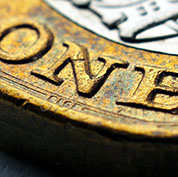The higher your credit score, the better your chances of securing a more advantageous mortgage deal – giving you more options and saving you money.
According to Experian, the average UK credit score is 798. The credit score range is usually between 0 and 999, with scores of 700 and upwards considered good.
What is a credit score?
A credit score tells lenders how likely you are to repay borrowed money. Credit reference agencies (CRAs) use information from your credit report to generate a score to show how dependable you are when borrowing and repaying money.
How can you improve your credit score?
- Check your credit score
Experian, Equifax and TransUnion are the UK’s top three CRAs lenders use during mortgage approvals, and they offer free credit score checks.
A free check helps you understand how lenders view you before applying for a mortgage. You can spot and correct errors, such as misspelt addresses, challenge fraudulent activity and deal with unused credit accounts, all of which will improve your credit score.
- Register on the electoral roll
Registering to vote helps lenders confirm your name and address and is a quick way to improve your credit score, so it’s worth checking that you are on the electoral roll.
- Improve your payment history
Paying your monthly bills in full and on time improves your credit score by showing your ability to handle credit responsibly. Aim to use under 30% of your credit limit to increase your score further.
- Build your credit history
CRAs cannot assess your financial reliability if you have too little credit history or none at all. Opening a bank account, getting a credit card and having a mobile phone contract are easy ways to build credit history. Managing these accounts well will improve your credit score and keep it high.
- Keep credit cards active
If you have credit cards, use them. Unused credit cards can lower your credit score, so set up small monthly direct debits to keep accounts active and your credit score high.
- Limit credit applications
Too many credit applications in a short space of time make you appear riskier to lenders. They also leave a hard credit check on your report, which can impact your credit score for six months. Limit credit applications to once every three months to minimise hard credit checks and avoid appearing dependent on credit.
How long does it take to improve your credit score?
It takes a few weeks for new bank accounts and credit cards to appear on your credit report and for them to improve your credit score. Any new accounts need to be active for a few months before you see an improvement in your score.
If you have missed payments or defaults, they will appear on your credit report for six years. The effect on your credit score decreases over time, and they will be deleted from your records after six years.
Once you are happy with your credit score, contact us for advice on the most suitable mortgage deals.
Approved by The Openwork Partnership on 14/10/2025.










